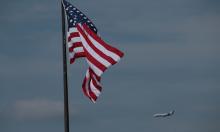US Congress votes for more troops in Colombia
Bogota's conservative government welcomed Washington's decission to double its military personell in the South American country. Human rights groups warned on an escalation in the 40-year old conflict.
Slowly but firmly, Washington increases its involvement in the largest internal armed conflict in Latin America. Despite the opposition of human right groups, the US Congress passed on Saturday the 2005 US Defense Department authorization act to double the number of US military personnel in Colombia to 800 in the incoming months.
According to Congress decision, the soldiers and many of the contractors will, among other things, develop and analyze intelligence on rebel movements, do surveillance and train Colombian troops in counter-guerrilla operations. The action was welcomed by conservative President Alvaro Uribe and his closer collaborators, as help in their “fight against terror”.
However, human rights groups consider Congress authorization a dangerous bid that could lead to a sharp escalation in Colombia’s armed conflict, which has involved for 40 years country’s government, leftist rebels, far right paramilitary groups and more recently, drug trafickers and other outlaw bandits. The bill also permits the Bush administration to increase the number of American citizens working for private contractors in Colombia to 600 from 400.
Capitol Hill’s lobbists put pressure over congressmen to lift restrictions saying more American personnel were urgently needed to help Colombia in its nine-month offensive in the south that pits 18,000 Colombian soldiers against the country's most powerful rebel group, the Revolutionary Armed Forces of Colombia, or FARC, by its initials in Spanish. According to them, lack of training is the main cause of the poor results of what was expected to be a formidable attack in rebel territory.
"That requires logistical capabilities, maintaining supply lines, getting food and fuel to the front, providing medical evacuation capabilities," told Adam Isacson, a senior analyst at the Center for International Policy, a Washington group that tracks Colombia, to the US press."They need a lot more American personnel to fill those gaps."
Even when welcomed by the government, the act does not fulfill the expectations of Colombian hawks in Bogota, led by president Alvaro Uribe. From time to time, Mr. Uribe calls to the international community for a major involvement in Colombia. He has even expressed he would welcome a “military invasion similar to the one in Iraq” to crackdown rebel forces.
Uribe’s hard line has risen concerned over other South American presidents, as Brazil's Lula, Argentina’s Kirchner and Venezuela’s Hugo Chavez, who do not want to see a full scale militarist adventure so close to their borders.
Subscribe to Pravda.Ru Telegram channel, Facebook, RSS!




